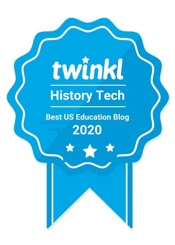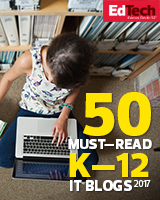Wayback Wednesday: These are the 7 most important things our students should be learning. Or maybe not.

I wrote this post about 18 months ago.
Back during the Before Times.
Back when, you know, things were normal and not so fricking . . . not normal. At the time, along with some amazing social studies rock stars, I got the chance to review and update the state standards document. That revised document was approved by the state board just days before all of this fricking . . . not normal stuff started. And I do think this newly approved, just rolled out document is better. It focuses on process while providing flexibility for local districts to decide on specific content.
And in many ways, it’s a fairly radical departure from what many state level standard documents look like. It’s got some suggestions on broad ideas and themes, some ideas on grade level scope and sequence. But no required history minutiae. No specific dates. Or people. Or events. We wanted kids to walk away with critical thinking skills that they can apply in a variety of contexts.
But now I’m curious.
If we had known then what we know now, would we have created something even more revisionist? As in, as the educational system is shifting towards a more blended, hybrid learning environment – one focused on problem-based learning, on a competency-based model rather than seat time – do the standards need to be pared down even more?
What truly is important for social studies students to know and be able to do? And do we even call them social studies students any more? Would Humanities students make more sense?
This Wayback Wednesday post focuses on 2018 Washington Post article that asked seven history gurus a simple question:
What are the most important things young people should be learning in school today?
Your homework is simple. Answer the question: Are the seven gurus right? In the New Normal of a school system that looks very different than it did when the Washington Post article and the state standards document was written, what truly is important for your kids to be learning?
———————————
In a couple weeks, me and 18 other social studies teachers, district level curriculum coordinators, state education consultants, and other assorted interested individuals will get together to rewrite the state’s social studies standards.
Rewrite is perhaps the wrong word. Revise might work better. Maybe just tweaks. Because the number of changes we make to the document really depends on the decisions we make during our time together. Do we think the current document is flawed enough for massive changes or are we looking at just some simple re-wording?
If you’ve been following History Tech for a few years, you know the story of our current standards. If you haven’t, a quick review.
Several years ago, per Department of Education regulations, a group of us was asked to come together for a scheduled review of the state social studies standards. Long story short . . . we changed them. We went from a document that encouraged the memorization of content to one that supported a balance between the gathering of information with the effective use of that information. We wanted kids to do social studies rather than simply memorize it. Along with the standards document came a performance-based assessment measuring historical and critical thinking skills that replaced the previous test of 60 multiple choice questions.
The goal was simple – change the way social studies is taught is the state. Focus on process and content. Measure thinking, not memorizing. Develop engaged, informed, and knowledgeable citizens. And while there’s been a few bumps along the way, the message that we need to go beyond traditional instruction has made its way through the system.
And now in 2018, we’re back – per Department of Education regulations – to look again at whether the document needs adjustments. It’s been an interesting conversation so far. Everyone is onboard with historical and critical thinking skills remaining a focus.
But the questions we’re really wrestling with are more complex: what should a state level, public document look like that encourages learning about a country and world as diverse, as complex, and as interesting as ours? How does it support the telling of multiple stories and themes and people and ideas without getting bogged down in the minutiae? What do we emphasize and what can we ignore?
As part of the process, I’ve been reading and looking at what other states are doing and what other current curriculum documents look like. During my search, I ran across a recent article in the Washington Post that asked seven historians a simple question:
What are the most important things young people should be learning in school today?
I don’t want to steal the Post’s thunder but I think it’s an interesting read. So I’ve posted an abbreviated version of their answers below. And I’d really be curious . . . do you agree with them? What are they missing? How would you answer the question?
Because that’s the whole point, isn’t it? Making sure our kids learn the most important things?
Walter Isaacson teaches at Tulane University and wrote Benjamin Franklin: An American Life.
Schools should be nurturing curiosity, rather than dampening the curiosity that comes naturally in our wonder years. Leonardo da Vinci was the person in history who was most passionately curious about everything there was to know about every subject that was knowable. That led him to love both the arts and sciences, the humanities and technology.
Ken Burns is a filmmaker best known for awesome documentaries such as The Civil War, The War and The Vietnam War.
Some thoughts for students . . . and teachers who are confronted with a difficult but hugely exciting time to help educate them: respect people with different opinions, read everything you can find, follow your passion, and listen even when you disagree.
Talitha LeFlouria teaches at the University of Virginia and wrote Chained in Silence: Black Women and Convict Labor in the New South.
Kids should be taught about slavery’s demise. But they should also learn about its evolution and its legacies. This is the most important thing kids should be learning in school today.
They should know that slavery didn’t end after the Civil War. It evolved. The 13th Amendment to the U.S. Constitution legally abolished slavery, “except as a punishment for a crime.” This clause enabled “slavery by another name” to continue through the prison system.
From the late 1860s until the 1920s (and even today!), thousands of African American men, women, and youth were virtually re-enslaved through a system known as convict leasing. If an individual was convicted of a felony offense, he or she would be forcibly leased to a private company or factory by the state for a fee.
Leased convicts helped build modern America. They deserve to be included in our history books.
Alex Kershaw is the author of 10 books including The Bedford Boys,
As a British immigrant to the U.S., I would suggest that the most important lesson to teach from American history today is that diversity has always been the country’s greatest strength. It is a nation of immigrants, of all faiths, drawn from around the globe. It is a nation based on the most noble of ideals. Every one of us should have equal rights. Any form of racism, sexism and indeed nationalism is profoundly unAmerican.
Sophia Rosenfeld teaches at the University of Pennsylvania and wrote the award-winning Common Sense: A Political History.
Rather than highlight a specific moment in history looking for lessons for our crazy present, I would try to teach students something about the nature and history of truth. And I’d do so in such a way as to simultaneously highlight some basic principles of democracy.
First, students need to learn how historians establish factual knowledge about the past . . . evidence collection, interpretation, verification: these are all vital skills that students can only learn from doing themselves. So is distinguishing proven truths, or knowledge, from falsehoods or unproven beliefs. I would also make sure that students understand how essential agreement about basic facts is for determining effective policy and even for engaging in productive political debates with people holding different values.
History education matters right now, and one big reason is because it teaches citizens-in-training both how to establish truth and how to take a critical eye to much of what passes for it in the world today.
James Grossman is the director of the American Historical Association and author of A Chance to Make Good: African Americans, 1900-1929.
The most important lesson . . . is an appreciation for evidence. The power of liberal education lies . . . in the different ways disciplines require that an argument be woven, substantiated, and articulated.
Consider the simple question that can be posed from kindergarten to a PhD dissertation defense: “How do you know that?” From the earliest age, a child can learn that assertion is not enough. “Because I say so,” offers no reason to raise one narrative, argument, or claim above another. “I read it on the internet” isn’t much better. Education is a process by which a student learns how to find, sift, and organize evidence while at the same time gaining the critical thinking skills necessary to evaluate evidence and identify claims based on mere assertion.
Eventually students should acquire an understanding of context: in this case, the difference between the nature of evidence in a laboratory, a courtroom, a debate forum, or a legislative hearing. Students at all levels can learn to use these different forms of evidence to build stories about past and present, near and far. And in each case, an instructor can ask them “how do you know that?”
The voter needs to respect evidence every bit as much as the civil engineer and the physician. That respect begins in the classroom.
Jack Schneider is an education historian and the director of research for the Massachusetts Consortium for Innovative Education Assessment. He is the author of Beyond Test Scores: A Better Way to Measure School Quality.
Attending a public school need not be a point of pride for young people. Yet it is unquestionably a right, and it might even be a privilege. I would encourage teachers to take some time in class to talk about why we’re all here, engaging in this exercise that we’ve been repeating across the generations. After all, the public schools belong to us. Insofar as that’s the case, they are as we have made them: full of promise, possibility, and problems. Just like America.
So . . . what did they miss?
. . . . . . . . . . . . . . . . . .
Glenn is a curriculum and tech integration specialist, speaker, and blogger with a passion for technology and social studies. He delivers engaging professional learning across the country with a focus on consulting, presentations, and keynotes. Find out more about Glenn and how you might learn together by going to his Speaking and Consulting page.
















